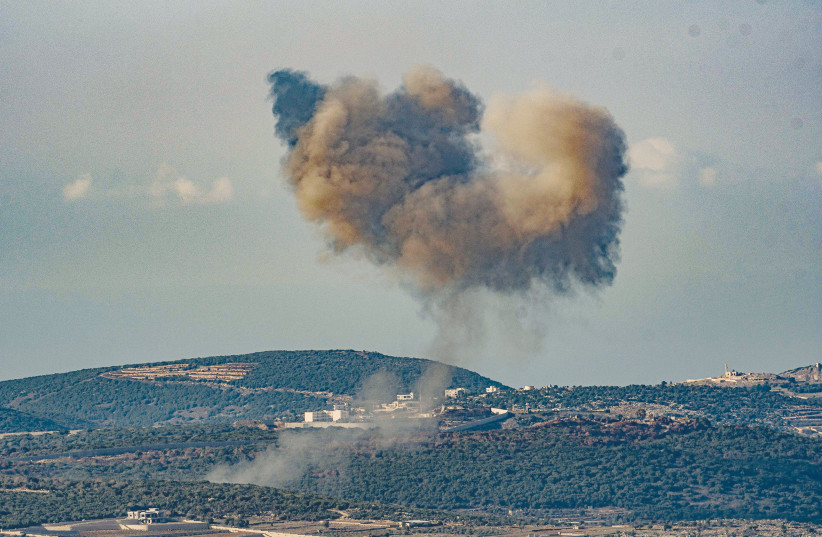Amid ongoing clashes between the IDF and Hezbollah in Israel's North, Rachel Wiesel of Kibbutz Sasa describes her morning when the first anti-tank missile struck the town.
"We hear the sound of IDF artillery firing towards Lebanon al the time, but today it was something different - it was closer and came from the opposite direction," she recounted. "First I heard the high-pitched whistle and only then the explosion."
A Kornet type anti-tank guided missile fired by Hezbollah hit the kibbutz's concert hall, smashing through the building's window, causing significant damage inside.
The story of the kibbutz mirrors the evacuated town of Kiryat Shmona, the repeatedly bombarded Moshav Margaliot, and the much of the North: A tale of displacement, abandonment by the state, and residents feeling like targets.
Israel's North under Hezbollah rocket fire
Since the beginning of Israel's war with Hamas, artillery shells and rockets have fallen in Kibbutz Sasa's fields, two kilometers from the Lebanese border. This morning marked the first time a guided missile struck the kibbutz. The incident made Wiesel reconsider her decision to return home. Like other residents, she left Sasa after the October 7 massacre in the South but later returned.

A few evacuees from the North returned home, dubbed "evacuation refusers," mostly comprising the older residents.
"It is difficult to be a refugee in your own country. It is not comfortable to be outside your home," said Wiesel. "One of the most difficult things for me was living in a different and unfamiliar space and it made me glued to the television all day. My partner and I decided to return home. The feeling in your home, in a space you are familiar with, is different and more comfortable. Maybe after today, we will decide to leave again."
Yoni Zoran stayed in Sasa while his family left. In charge of the kibbutz's vehicles, he said, "As long as I can be useful, I will stay here. But if there is an escalation, I will have to leave." Eric Kaminer, commander of Sasa's emergency standby squad, also stayed home while his family left. It was when he went to visit his family that Sasa was hit by the missile.
Luckily for the kibbutz, the damage caused to the hit building, though significant, is still just its stone walls and chairs. If the missile had hit outside the concert hall, the petting zoo, an important site in the kibbutz, might have been impacted. The petting zoo was founded by Yitzhak Kaminer, Eric's father, a decorated paratrooper officer.
This decorated paratrooper and others symbolize today for many state's current lack of initiative in the North. Residents criticize the town have been mostly evacuated and that Hezbollah continues to launch attacks, claiming that the state is being passive. Kaminer criticized the lack of response, saying that Israel isn't setting the rules for the North now.
Wiesel feels that "the IDF is protecting us and I have no complaints," but she understands those demanding action. Eric Kaminer will return to Sasa, to the emergency standby squad, but mainly to the kiwifruit plantations he oversees. Sasa is Israel's largest kiwifruit grower, troubled by damaged bushes and upcoming pruning.
